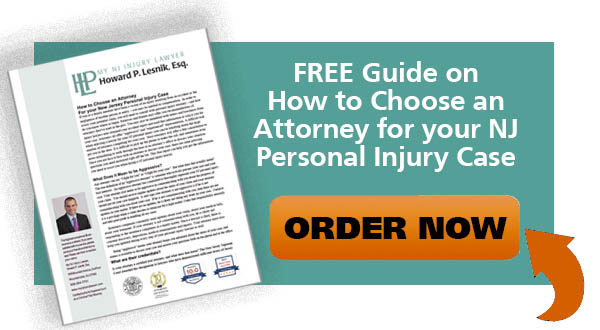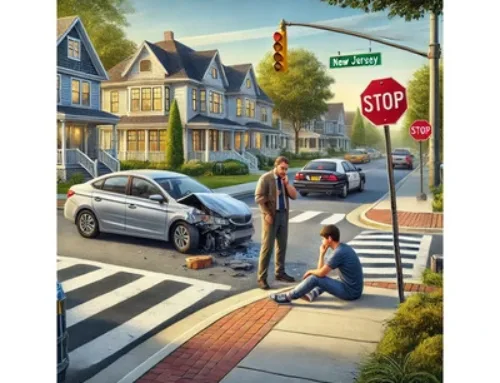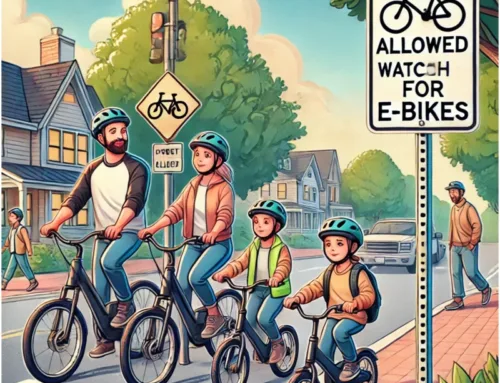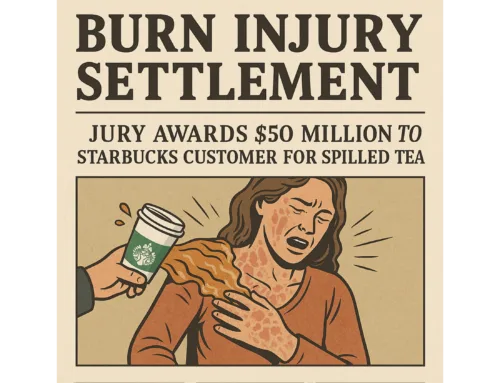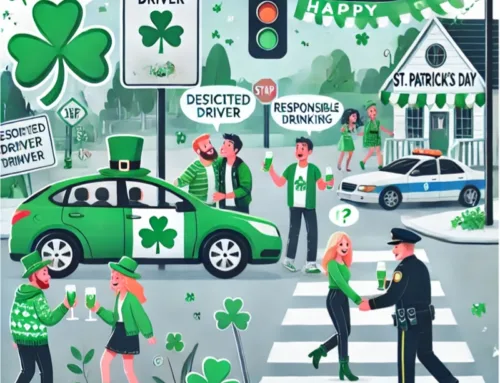With the arrival of another new year, many people’s thoughts naturally turn to resolutions of changes they want to make to improve their lives. Typically, many such resolutions are vague or overly ambitious, and quickly fall by the wayside as the “new year energy” wears off and everyday life reasserts itself. However, there are a few very specific and achievable resolutions you can make to stay safer in the new year and protect yourself and your loved ones from accidental injury.
 Resolving to take safety measures to avoid accidents is one of the most effective ways to protect your health and happiness in the new year. Accidental injury is the fourth leading cause of death in the US, beaten only by heart disease, cancer, and COVID-19. Surviving a serious accident can still mean a lengthy struggle, as many accident victims face financial instability, debt or bankruptcy, pain and health complications, and depression as a result of their injuries and medical bills. When you can significantly reduce your risk of accident with a few simple precautions, that’s a New Year’s resolution you can feel good about all year long.
Resolving to take safety measures to avoid accidents is one of the most effective ways to protect your health and happiness in the new year. Accidental injury is the fourth leading cause of death in the US, beaten only by heart disease, cancer, and COVID-19. Surviving a serious accident can still mean a lengthy struggle, as many accident victims face financial instability, debt or bankruptcy, pain and health complications, and depression as a result of their injuries and medical bills. When you can significantly reduce your risk of accident with a few simple precautions, that’s a New Year’s resolution you can feel good about all year long.
- Regularly check for hazards around the home. This is important safety advice for everyone, but doubly so for homes with children, or people who regularly invite guests into your home. Generally speaking, you are ultimately responsible for the safety of anyone you bring into your home, so it pays to ensure that you and those you care about are safe from unexpected hazards. Accidents around the house can have consequences ranging from superficial scrapes and bruises to broken bones, traumatic brain injury, permanent disability, or death.
Check around your home regularly for potential tripping or slipping hazards, including loose rugs, electrical cords that stretch across walkways unsecured, clutter on stairs or in walking paths through the home, and slippery floor surfaces on or near stairs. The bathroom, full of slick surfaces and hard furnishings, also warrants particular attention. While you’re checking the bathroom, keep alert for the proper storage of cleaning chemicals and medications – ensure that curious children and pets cannot get into anything that could harm them. In addition, check regularly for possible fire hazards, such as overloaded power outlets, candles positioned close to flammable furnishings, or other appliances that generate heat. Make sure that all the smoke detectors in your home are in proper working order.
- Keep your vehicles properly maintained. Some automotive accidents are caused by driver error, but improper vehicle maintenance contributes to many crashes. According to NHTSA (National Highway Traffic Safety Administration) estimates, approximately 44,000 accidents every year happen as a result of vehicle maintenance issues. 35 percent of those accidents are due to poorly maintained tires, and another 22 percent are caused by brake issues. Something as simple as failing to change your windshield wiper blades when they begin to wear out can contribute to an accident, since you might struggle to see hazards in the road ahead of you during a rainstorm.
Many types of vehicle maintenance are fairly simple and inexpensive. By picking up a tire gauge, you can ensure that your tires are properly inflated, and tread depth can be checked with a coin. Refill any fluids your vehicle needs, and stick to your recommended schedule for oil changes. While you’re thinking about it this month, make an appointment to bring your car in for a tune-up so the experts can catch any problems before they cause you a breakdown or accident on the road. It’s also a good idea to make sure you have an emergency kit in your trunk with all the essentials – working spare tire and tools, flashlight and batteries, first aid kit, blanket, and so on.
- Practice safe and defensive road use. Whether you’re walking, cycling, or driving, one of the biggest threats to your safety is other vehicles. Between 2 and 6 million people every year require medical attention after an automotive collision, according to NHTSA and NSC estimates. You can’t control other drivers, but you can remain alert for their actions, and keep your own behavior predictable to make it easier for other road users to navigate around you safely.
Always wear the appropriate safety gear – in a car, that’s your seat belt, and on a bike or motorcycle, that’s a helmet. As a pedestrian, your safety gear is bright or reflective clothing to make you more visible to drivers, especially at night. Remain responsible and alert while driving: drowsy, distracted, and drunk (or otherwise intoxicated) driving are all major causes of deadly accidents. Always signal your turns and lane changes (but be aware that other drivers might not). As a pedestrian, use sidewalks and crosswalks whenever they are present. In general, stay alert and cautious when using the road in any capacity.
- Examine and update your insurance policies. While this is less about preventing accidents and more about mitigating the consequences, your insurance policies are still important tools to protect yourself and your family from forces that are not entirely within your control. If you’re injured by a motorist who carries only the legal minimum liability coverage (or worse, no insurance at all!), you’ll be thankful for having purchased UM/UIM (uninsured/underinsured motorist) coverage. You should also review your health insurance coverage, your homeowner’s or renter’s insurance, and flood insurance (remember that your homeowner’s policy doesn’t cover flooding) to guarantee that in the event of disaster, your financial well-being won’t be among the stresses on your mind.
- Know a trustworthy personal injury attorney. Obviously, you hope never to need a lawyer, but in the event that you’re seriously injured in an accident, it would be better to have some idea of who the trusted experts in your area are, rather than finding yourself scrambling to vet attorneys while you’re injured and suffering. Knowing that there are reliable and knowledgeable personal injury lawyers ready to help you if you suffer an injury can make a traumatic and stressful situation a little easier.
Contact MyNJInjuryLawyer Howard P. Lesnik
If you or a loved one suffered an injury in an accident in NJ, you should contact an attorney familiar with handling these claims. An experienced NJ Injury Lawyer will know how to obtain medical records, videos, photographs, experts, locate witnesses and contact the insurance company so you can make a claim for your injuries.
My NJ Injury Lawyer Howard P. Lesnik, Esq. offers complimentary strategy sessions to address any issue or questions you may have for your injury claim in NJ.
Please contact NJ Injury Lawyer Howard Lesnik, Esq., immediately if you were involved in an accident. I personally handle NJ personal injury cases on a regular basis. Please contact me now by email, by phoning 908.264.7701, or by completing the form to the right to schedule your complimentary 30-minute strategy session. Call me direct and I will answer 5 questions that you have about your potential claim.


